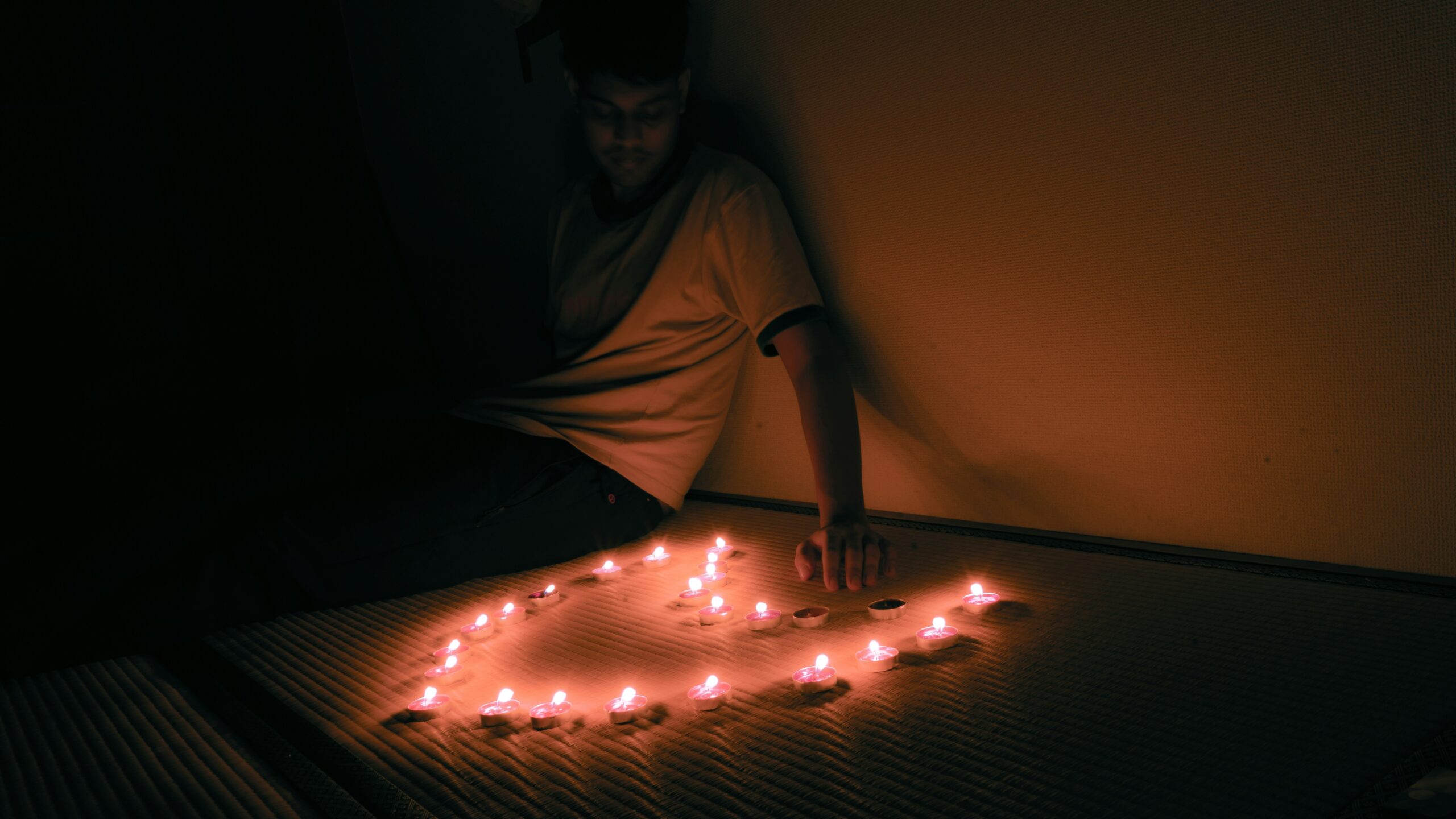You know those couples who just seem to have it all figured out? The ones who still hold hands after 20 years, who laugh at each other’s terrible jokes, and who somehow make marriage look effortless? Well, here’s a secret: they’re not lucky, and they don’t have some magical relationship gene. They’ve just mastered the habits of happy couples.
As someone who’s spent years studying relationships and helping couples rebuild their connections, I can tell you that happy couples aren’t born, they’re made. After working with hundreds of pairs through everything from newlywed bliss to midlife crises, I’ve discovered some fascinating patterns. These couples aren’t perfect (trust me, I’ve heard all their arguments!), but they’ve cracked the code on what actually works.
So what separates the couples who thrive from those who barely survive? It’s not grand romantic gestures or expensive date nights, though those are nice. It’s the small, daily habits that build intimacy, trust, and genuine connection over time.
Ready to steal their secrets? Let’s explore the eight game-changing habits that keep happy couples deeply connected, even when life gets messy.
The Foundation of Relationship Happiness
Before we jump into the specific habits, let me share something crucial I’ve learned: happiness in relationships isn’t about finding the perfect person. It’s about two imperfect people choosing to love each other perfectly, flaws and all.
I used to think love was enough to carry a relationship. Boy, was I wrong! Love is the foundation, but it needs action to survive. Think of it like a garden. You can have the most beautiful seeds (love), but without water, sunlight, and care (daily habits), nothing grows.
The couples I work with who report the highest satisfaction levels all have one thing in common: they’re intentional about their relationship. They don’t just hope things work out; they actively create the connection they want.
Understanding What Makes Couples Truly Happy
Here’s what’s interesting about relationship research: the habits that create lasting happiness aren’t what most people expect. We’re conditioned to think it’s about never fighting, having amazing physical chemistry, or sharing every single interest.
Reality check! Happy couples fight (they just fight better), they have dry spells, and sometimes one person loves hiking while the other prefers Netflix marathons. What they have mastered is the art of staying emotionally connected through all of life’s ups and downs.
The magic happens in the mundane moments. It’s less about the Instagram-worthy date nights and more about how you greet each other after work, how you handle stress together, and whether you make your partner feel seen and valued on a random Tuesday.
1. They Do Not Hesitate To Express Their Heartfelt Love For Each Other
Happy couples are love-expression champions. They don’t wait for special occasions or perfect moments to tell their partner how they feel. These couples have figured out that love is like a muscle use it or lose it.
I’m talking about real, genuine appreciation, not just throwing around “love you too” when someone’s heading out the door. Happy couples actively look for things to celebrate about their partner. They notice when their spouse handles a difficult situation well, when they look particularly attractive, or when they do something thoughtful.
The key is specificity. Instead of “I love you,” try “I love how patient you were with your mom on the phone today” or “I love the way you make me laugh when I’m stressed.” This kind of detailed appreciation makes your partner feel truly seen.
Here’s what I’ve observed: couples who express love regularly create a positive feedback loop. When you consistently acknowledge what you appreciate about someone, they naturally want to do more of those things. It’s relationship psychology 101, and it works like magic.
Some couples worry this will feel forced or fake. Here’s the thing, though: gratitude and appreciation are skills you can develop. The more you practice noticing the good stuff, the better stuff you’ll actually see.
2. They Make Their Partners A Priority
This one’s huge, and honestly, it’s where I see most couples struggle. Happy couples understand that prioritizing each other doesn’t mean dropping everything for your partner 24/7. It means consistently choosing your relationship when it matters.
I’ve worked with couples who are genuinely shocked to discover they haven’t had a real conversation in weeks. They live together, they coordinate schedules, they discuss who’s picking up groceries, but they’ve stopped actually connecting. Happy couples refuse to let this happen.
Prioritizing looks like this in real life:
- Putting phones away during dinner conversations
- Checking in with each other before making plans that affect the family
- Choosing to stay home together sometimes instead of always being “busy”
- Asking about each other’s day and actually listening to the answer
- Making decisions as a team rather than as individuals who happen to share a house
The couples who master this habit understand that their relationship is the foundation of everything else that is built. When that foundation is strong, everything else (kids, careers, friendships) benefits. When it’s shaky, everything feels harder.
I always tell couples: you can be the most successful person in the world, but if you come home to a disconnected relationship, you’ll still feel empty. Your partner should feel like your safe harbor, not just another person competing for your attention.
3. They Touch Each Other
Physical affection might be the most underrated relationship superpower. I’m not just talking about bedroom intimacy (though that matters too). I mean casual, everyday touching that keeps you connected.
Science backs this up in a big way. Physical touch releases oxytocin, often called the “love hormone,” which literally bonds people together. Happy couples instinctively know this and use it to their advantage.
Simple touches that make a huge difference:
- Hand on the shoulder while passing by
- Quick back rub while your partner cooks
- Holding hands while watching TV
- Hugs that last longer than three seconds
- Playing with each other’s hair
- Foot rubs while talking
Here’s what’s fascinating: couples who touch regularly report feeling more satisfied with their relationship overall, even when other areas need work. Physical connection seems to create a buffer that helps couples weather storms together.
I’ve noticed that couples in crisis often stop touching long before they stop talking. It’s like they’re emotionally distancing themselves by creating physical distance. Happy couples do the opposite. Even during disagreements, they maintain some level of physical connection.
For anyone thinking “we’re just not touchy people,” I challenge you to experiment for a week. Try increasing casual, non-sexual touch and see how it affects your overall connection. You might surprise yourself! Tools like Gottman Card Decks can help you explore new ways to connect physically and emotionally.
4. They Understand Each Other
Understanding your partner goes way deeper than knowing their coffee order (though that helps too :)). Happy couples become students of each other. They pay attention to patterns, triggers, needs, and dreams.
This is where the 5 Love Languages becomes incredibly valuable. I can’t tell you how many couples have had breakthrough moments when they realized they were loving each other in their own language rather than their partner’s language.
Here’s a real example from my practice: Sarah felt unloved because her husband Mike never brought her flowers or gifts. Mike felt unappreciated because Sarah never acknowledged all the ways he helped around the house. Turns out, Sarah’s love language was receiving gifts, while Mike’s was words of affirmation. Once they understood this, everything clicked.
Understanding also means recognizing your partner’s emotional patterns. Maybe they need space when stressed, or maybe they need extra reassurance during busy seasons at work. Happy couples learn these patterns and respond accordingly rather than taking things personally.
The couples who master this habit also understand that people grow and change. They stay curious about each other rather than assuming they know everything. They ask questions, check assumptions, and remain open to discovering new things about their partner even after decades together.
Pro tip: Try the app Relish for guided conversations that help you understand each other better. Sometimes having structure makes these deeper conversations easier.
5. They Communicate
Communication is like the electrical wiring of your relationship. When it’s working well, you don’t really notice it, but when it’s broken, nothing else functions properly.
Happy couples have learned to communicate about the small stuff before it becomes big stuff. They don’t wait for annual relationship talks or crisis moments to check in with each other. Communication is woven into their daily routine.
What good communication actually looks like:
- Sharing thoughts and feelings as they happen, not storing them up
- Asking for clarification instead of assuming you know what your partner means
- Expressing needs clearly rather than hoping your partner will guess
- Listening to understand, not just to respond
- Taking breaks during heated discussions when emotions run high
Here’s something I see with struggling couples: they communicate about logistics constantly (who’s doing what, when, where) but rarely about emotions, dreams, fears, or desires. Happy couples balance both types of communication.
They also know that good communication isn’t about never disagreeing. It’s about disagreeing well. They’ve learned to fight about the issue, not attack each other’s character. They focus on finding solutions rather than being right.
One habit I love is the daily check-in. Even just five minutes each evening asking “How was your day really?” and “What do you need from me right now?” can transform your connection. Apps like Lasting can provide prompts for these deeper conversations.
6. They Have Fun Together
Fun is the secret ingredient that keeps relationships feeling fresh instead of feeling like work. Happy couples prioritize play, laughter, and shared enjoyment, even when life gets serious and responsibilities pile up.
I’ve observed something interesting: couples who regularly have fun together report higher relationship satisfaction and better conflict resolution skills. Why? Positive shared experiences create what researchers call “emotional bank deposits” that you can draw from during difficult times.
Fun doesn’t have to be expensive or elaborate:
- Game nights at home with ridiculous competitions
- Trying new recipes together and laughing at the disasters
- Dancing in the kitchen while dinner cooks
- Taking walks and making up stories about people you see
- Having themed movie marathons with homemade snacks
The key is finding activities you both genuinely enjoy. Maybe you’re both competitive and love board games, or maybe you’re adventure seekers who try new hiking trails. Happy couples figure out what makes them both light up, and they prioritize it.
Here’s what’s crucial: fun needs to be protected time. It’s easy to say, “We’ll have fun when we finish everything else,” but everything else never gets finished. Schedule fun like you schedule doctor appointments. Your relationship health depends on it!
I also encourage couples to try new things together occasionally. Novel experiences trigger dopamine release and can recreate some of that early relationship excitement.
7. They Make Sacrifices
Love without sacrifice isn’t really love; it’s just convenience. Happy couples understand that sometimes you put your partner’s needs above your own wants, and you do it gladly because you’re building something together.
But here’s the crucial part: healthy sacrifice is mutual and voluntary. It’s not one person always giving while the other takes. It’s both people choosing to sometimes prioritize the relationship over individual preferences.
What healthy sacrifice looks like:
- Watching your partner’s favorite show even though you find it boring
- Attending their family gatherings, even when you’d rather stay home
- Supporting their career goals even when it means temporary inconvenience
- Compromising on big decisions instead of insisting on your way
- Giving up some personal time to help during stressful periods
I want to be clear, though: sacrifice should never mean losing yourself or accepting mistreatment. The couples I work with who are happiest have both people making reasonable sacrifices for their shared goals and values.
The magic happens when sacrifice becomes natural rather than resentful. When you genuinely want your partner to be happy, making small sacrifices stops feeling like giving something up and starts feeling like love in action.
Happy couples also acknowledge each other’s sacrifices. They notice when their partner chooses the relationship over personal convenience, and they express gratitude for it. This creates a positive cycle where both people feel appreciated for their efforts.
8. They Create Their Couples Ritual
Every happy couple I know has developed its own unique rituals and traditions. These aren’t borrowed from other couples or copied from movies. They’re organic practices that developed naturally and became sacred to their relationship.
Examples of a couple of rituals I’ve seen:
- Saturday morning coffee in bed while sharing the week’s highlights
- Evening walks where phones are forbidden and conversation flows
- Surprise date nights where partners take turns planning adventures
- Special ways of celebrating each other’s wins, big and small
- Unique traditions around holidays, anniversaries, or difficult days
What makes these rituals powerful is that they’re yours. Nobody else does them quite the same way, and they become part of your couple identity. They create anticipation, connection, and shared meaning.
I encourage every couple to consciously develop at least one ritual they both love. It might start accidentally (like always debriefing your days during the drive home) and then become intentional (like setting aside that time as a sacred conversation space).
The best rituals are sustainable and flexible. They should enhance your connection without adding stress to your schedule. They should feel like treats, not obligations.
Apps like Gottman’s Card Decks can help you discover new rituals to try, or you might find inspiration on Pinterest for unique couple traditions.
Building a deeply connected relationship is like growing an oak tree. It takes time, consistent care, and patience, but the result is something strong enough to weather any storm and beautiful enough to inspire others.
Final Thoughts
At the heart of every strong relationship are the little things couples do consistently. Deep connection isn’t built overnight, it grows through intentional habits like honest communication, shared rituals, affection, and mutual respect.
These simple yet powerful practices create trust, intimacy, and an unshakable bond. When love is nurtured daily, it doesn’t just last it thrives.
Pin this for later!







